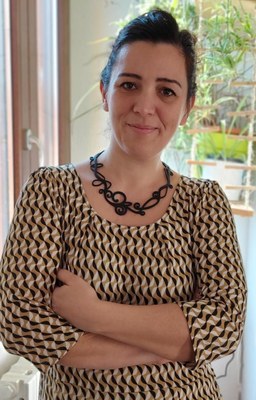RicERCatori in evidenza - La App per trovare le parole giusteRicERCatori in Evidenza - The App for finding the right words
Is it possible to study the link between the concreteness and specificity of words and the effectiveness of a text with a simple game? Of course! Marianna Bolognesi, lecturer at the Department of Modern Languages, Literatures and Cultures at the University of Bologna, who won a starting grant from the European Research Council (ERC) this year with the ABSTRACTION project, tells us about it.
 What is ABSTRACTION? What challenge does it respond to?
What is ABSTRACTION? What challenge does it respond to?
When we read a newspaper article, a book, an instruction manual, we expect the words to be understandable and have meaning for us, otherwise we get distracted and do not understand. This applies to different types of texts and also to different types of readers, for each of whom the most suitable words are needed. The ABSTRACTION project (Abstraction. Unlocking meaning from experience, through language) aims to show how the concreteness and specificity of words influence the quality of a text, and its perception by the reader.
How are words identified to determine the effectiveness of a written text or metaphor?
We aim to seek the answer through a large-scale approach, collecting a large amount of linguistic data both in Italian and in English. Language is rich in words with different characteristics. Some are very concrete (e.g. dog, pear) and some are very abstract (art, joy). Then there are specific words (Williams pear, German shepherd) and generic words (thing, object, emotion).
What are the elements that make this research particularly innovative in terms of content and method?
The most innovative element of this research is the collection of data through “gamification”, i.e. through a game, similar to Scrabble or Wordle, that will be developed via an app. Players will develop lexical skills and at the same time help us collect data on word specificity while having fun. Data on the concreteness of words in our language already exists, whereas this is not the case for the specificity of words; nor do we fully know, for example, how this changes between children and adults.
What do you see as the benefits or impacts on society of your research?
The right words in terms of concreteness and specificity change depending on the communicative context and the type of audience. This research will help us understand how to choose the right words for each audience if we want to achieve effective communication. Our results may also be used to develop software to support teachers, academics or journalists in preparing effective texts.
Can you give us some examples?
To explain Covid to children, we say that it is 'like a tiny ball-shaped insect with spikes around it, which gets into the nose and mouth and gives you a fever'; we do not talk about 'glycoproteins' and 'respiratory infections'. If a text is not suitable, the reader's responses are distraction and frustration.
How did you feel when you heard you had been selected for funding? What does this mean for your research path?
It was a great satisfaction to have been selected for the project. I returned to Bologna in 2019 after four years abroad with a group of co-workers of various nationalities. The pandemic has left little room for new interactions and scientific collaborations. This project is a great way to introduce myself to colleagues at the university: 'Pleased to meet you, Marianna Bolognesi, ERC'. I hope to develop a network of collaborations with various departments such as Computer Science, Humanities and Psychology, so as to contribute to enriching and strengthening the community of linguists at the University of Bologna.
RicERCatori in Evidenza is the column dedicated to the University of Bologna's cutting-edge research funded by the European Research Council-ERC and its protagonists.
